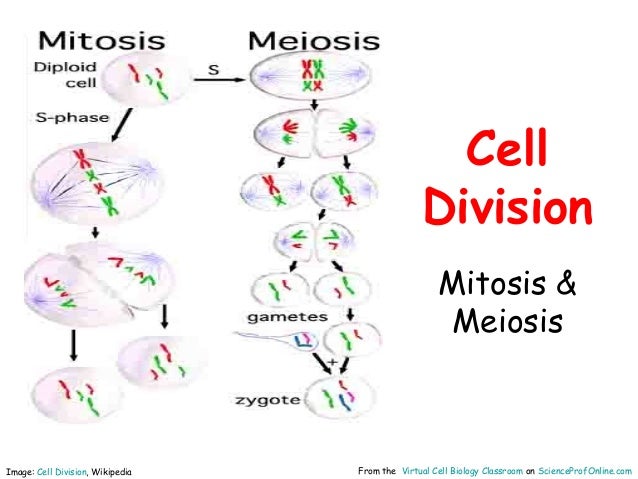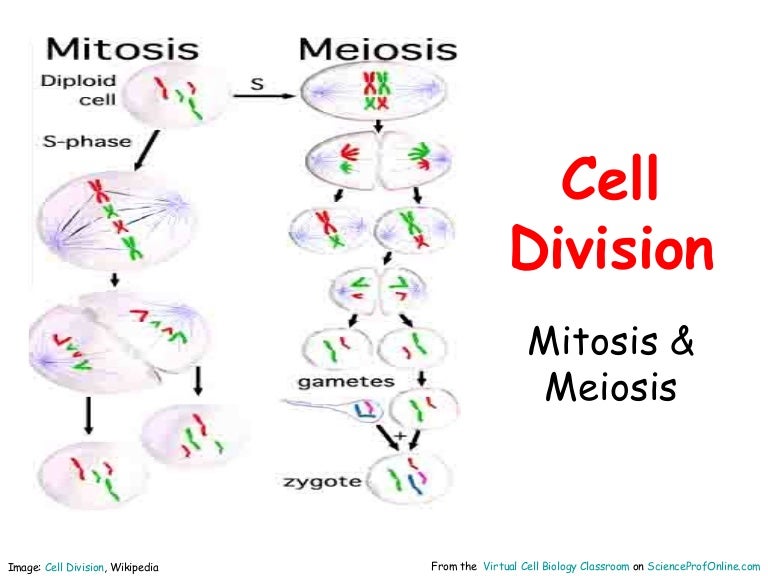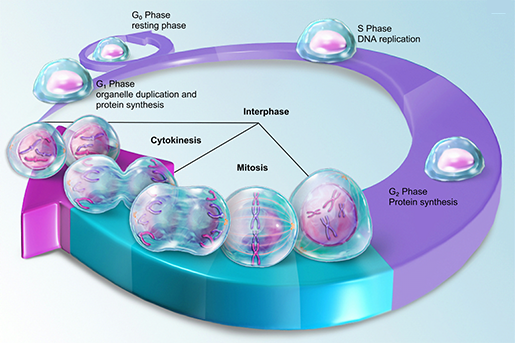Your In meiosis each parent cell produces __________ images are ready. In meiosis each parent cell produces __________ are a topic that is being searched for and liked by netizens today. You can Get the In meiosis each parent cell produces __________ files here. Find and Download all free images.
If you’re searching for in meiosis each parent cell produces __________ pictures information linked to the in meiosis each parent cell produces __________ topic, you have visit the right blog. Our site frequently provides you with hints for seeking the maximum quality video and image content, please kindly search and locate more enlightening video articles and graphics that match your interests.
In Meiosis Each Parent Cell Produces __________. Each daughter cell is haploid because it has half the number of chromosomes as the original parent cell. In meiosis the number of chromosomes in the new cell is half the number in the parent cells 3. So meiosis is called Reductional Division. The division of meiosis 1 was asymmetric so the future ovum is large and other cells are much smaller.
 6 1 Chromosomes And Meiosis Review Of Mitosis From slidetodoc.com
6 1 Chromosomes And Meiosis Review Of Mitosis From slidetodoc.com
In meiosis the number of chromosomes in the new cell is half the number in the parent cells 3. DEFINITION OF MEIOSIS. Unlike mitosis meiosis is a reduction division the chromosome number is halved from diploid 46 chromosomes in 23 pairs in humans to. So one parental cell produces 4 daughter cells each having half the chromosome number and DNA amount than the normal parental cell. So meiosis is called Reductional Division. Click to see full answer.
Each daughter cell is haploid because it has half the number of chromosomes as the original parent cell.
It takes the genetic information of the parents either of a mother or a father for the formation of the egg cell. The overall process of meiosis produces four daughter cells from one single parent cell. While mitosis occurs in both prokaryotic and eukaryotic organisms meiosis occurs in eukaryotic animal cells plant cells and fungi. These four daughter cells only have half the number of chromosomes of the parent cell - they are haploid. Meiosis produces four sex cells or gametes eggs in females and sperm in males Ploidy of meiosis cells. In meiosis four offspring are formed 4.
 Source: pinterest.com
Source: pinterest.com
Your body is made of somatic cells that each has 46 chromosomes. In meiosis the number of chromosomes in the new cell is half the number in the parent cells 3. Meiosis is a kind of cell division that brings about four daughter cells each with half the number of chromosomes of the parent cell as in the making of plant spores and gametes. These four daughter cells only have half the number of chromosomes of the parent cell - they are haploid. The overall process of meiosis produces four daughter cells from one single parent cell.
 Source: slideshare.net
Source: slideshare.net
Your body is made of somatic cells that each has 46 chromosomes. DEFINITION OF MEIOSIS. In meiosis four offspring are formed 4. The overall process of meiosis produces four daughter cells from one single parent cell. Your body is made of somatic cells that each has 46 chromosomes.
 Source: slidetodoc.com
Source: slidetodoc.com
Meiosis produces four sex cells or gametes eggs in females and sperm in males Ploidy of meiosis cells. The overall process of meiosis produces four daughter cells from one single parent cell. This means the future ovum has a large amount of cytoplasm to sustain the early embryo if the ovum is fertilised. In meiosis the number of chromosomes in the new cell is half the number in the parent cells 3. By the end of meiosis the resulting reproductive cells or gametes each have 23 genetically unique chromosomes.
 Source: pinterest.com
Source: pinterest.com
Unlike mitosis meiosis is a reduction division the chromosome number is halved from diploid 46 chromosomes in 23 pairs in humans to. In meiosis there is exchange. Of the 46 chromosomes in each of your body cells 23 came from one of your parents and 23 came. Similarly one may ask how many chromosomes are in. Meiosis produces four sex cells or gametes eggs in females and sperm in males Ploidy of meiosis cells.
 Source: pinterest.com
Source: pinterest.com
It takes the genetic information of the parents either of a mother or a father for the formation of the egg cell. So one parental cell produces 4 daughter cells each having half the chromosome number and DNA amount than the normal parental cell. While mitosis occurs in both prokaryotic and eukaryotic organisms meiosis occurs in eukaryotic animal cells plant cells and fungi. DEFINITION OF MEIOSIS. Your body is made of somatic cells that each has 46 chromosomes.
 Source: pinterest.com
Source: pinterest.com
Meiosis I Meiosis II Meiosis Meiosis is a special kind of cell division that produces gametes sperm and egg that have only half the number of chromosomes as the parent cell. Your body is made of somatic cells that each has 46 chromosomes. The overall process of meiosis produces four daughter cells from one single parent cell. So one parental cell produces 4 daughter cells each having half the chromosome number and DNA amount than the normal parental cell. During meiosis one divides twice to form four daughter cells.
 Source: slideshare.net
Source: slideshare.net
DEFINITION OF MEIOSIS. While mitosis occurs in both prokaryotic and eukaryotic organisms meiosis occurs in eukaryotic animal cells plant cells and fungi. During meiosis one divides twice to form four daughter cells. It takes the genetic information of the parents either of a mother or a father for the formation of the egg cell. Mitosis produces two diploid 2n somatic cells that are genetically identical to each other and the original parent cell whereas meiosis produces four haploid n gametes that are genetically unique from each other and the original comparing mitosis and meiosis.
 Source: slidetodoc.com
Source: slidetodoc.com
In meiosis the number of chromosomes in the new cell is half the number in the parent cells 3. In meiosis four offspring are formed 4. Of the 46 chromosomes in each of your body cells 23 came from one of your parents and 23 came. Meiosis I Meiosis II Meiosis Meiosis is a special kind of cell division that produces gametes sperm and egg that have only half the number of chromosomes as the parent cell. Unlike mitosis meiosis is a reduction division the chromosome number is halved from diploid 46 chromosomes in 23 pairs in humans to.
 Source: pinterest.com
Source: pinterest.com
During meiosis one divides twice to form four daughter cells. Meiosis I produces _____ cells each of which is _____. By the end of meiosis the resulting reproductive cells or gametes each have 23 genetically unique chromosomes. While mitosis occurs in both prokaryotic and eukaryotic organisms meiosis occurs in eukaryotic animal cells plant cells and fungi. The overall process of meiosis produces four daughter cells from one single parent cell.
 Source: bio.miami.edu
Source: bio.miami.edu
Meiosis I Meiosis II Meiosis Meiosis is a special kind of cell division that produces gametes sperm and egg that have only half the number of chromosomes as the parent cell. The overall process of meiosis produces four daughter cells from one single parent cell. Unlike mitosis meiosis is a reduction division the chromosome number is halved from diploid 46 chromosomes in 23 pairs in humans to. Meiosis produces four genetically different haploid cells. Again the division is asymmetric and it is the haploid nucleus of the larger cells that fuses with the sperm.
 Source: visiblebody.com
Source: visiblebody.com
This produces 4 haploid cells. Your body is made of somatic cells that each has 46 chromosomes. So one parental cell produces 4 daughter cells each having half the chromosome number and DNA amount than the normal parental cell. This produces 4 haploid cells. These cells carry genetic information that is involved in sexual reproduction.
 Source: slideplayer.com
Source: slideplayer.com
Of the 46 chromosomes in each of your body cells 23 came from one of your parents and 23 came. Meiosis produces four sex cells or gametes eggs in females and sperm in males Ploidy of meiosis cells. Similarly one may ask how many chromosomes are in. Each daughter cell is haploid because it has half the number of chromosomes as the original parent cell. The division of meiosis 1 was asymmetric so the future ovum is large and other cells are much smaller.
 Source: pinterest.com
Source: pinterest.com
It takes the genetic information of the parents either of a mother or a father for the formation of the egg cell. Unlike mitosis meiosis is a reduction division the chromosome number is halved from diploid 46 chromosomes in 23 pairs in humans to. In meiosis the number of chromosomes in the new cell is half the number in the parent cells 3. By the end of meiosis the resulting reproductive cells or gametes each have 23 genetically unique chromosomes. Meiosis is a special type of cell division in which chromosomes duplicate only once but the cell divides twice.
 Source: slidetodoc.com
Source: slidetodoc.com
Meiosis produces four sex cells or gametes eggs in females and sperm in males Ploidy of meiosis cells. This means the future ovum has a large amount of cytoplasm to sustain the early embryo if the ovum is fertilised. Each daughter cell is haploid because it has half the number of chromosomes as the original parent cell. The overall process of meiosis produces four daughter cells from one single parent cell. By the end of meiosis the resulting reproductive cells or gametes each have 23 genetically unique chromosomes.
 Source: slidetodoc.com
Source: slidetodoc.com
During meiosis one divides twice to form four daughter cells. So one parental cell produces 4 daughter cells each having half the chromosome number and DNA amount than the normal parental cell. Click to see full answer. Meiosis produces four genetically different haploid cells. So meiosis is called Reductional Division.
 Source: slidetodoc.com
Source: slidetodoc.com
So meiosis is called Reductional Division. By the end of meiosis the resulting reproductive cells or gametes each have 23 genetically unique chromosomes. DEFINITION OF MEIOSIS. Each daughter cell is haploid because it has half the number of chromosomes as the original parent cell. The future ovum only completes meiosis 2 after it has been penetrated by a sperm cell.

Meiosis produces four sex cells or gametes eggs in females and sperm in males Ploidy of meiosis cells. These cells carry genetic information that is involved in sexual reproduction. Meiosis takes place only in the production of gametes 2. It takes the genetic information of the parents either of a mother or a father for the formation of the egg cell. Unlike mitosis meiosis is a reduction division the chromosome number is halved from diploid 46 chromosomes in 23 pairs in humans to.
 Source: pinterest.com
Source: pinterest.com
So one parental cell produces 4 daughter cells each having half the chromosome number and DNA amount than the normal parental cell. The division of meiosis 1 was asymmetric so the future ovum is large and other cells are much smaller. Similarly one may ask how many chromosomes are in. It takes the genetic information of the parents either of a mother or a father for the formation of the egg cell. In meiosis four offspring are formed 4.
This site is an open community for users to submit their favorite wallpapers on the internet, all images or pictures in this website are for personal wallpaper use only, it is stricly prohibited to use this wallpaper for commercial purposes, if you are the author and find this image is shared without your permission, please kindly raise a DMCA report to Us.
If you find this site value, please support us by sharing this posts to your favorite social media accounts like Facebook, Instagram and so on or you can also save this blog page with the title in meiosis each parent cell produces __________ by using Ctrl + D for devices a laptop with a Windows operating system or Command + D for laptops with an Apple operating system. If you use a smartphone, you can also use the drawer menu of the browser you are using. Whether it’s a Windows, Mac, iOS or Android operating system, you will still be able to bookmark this website.





